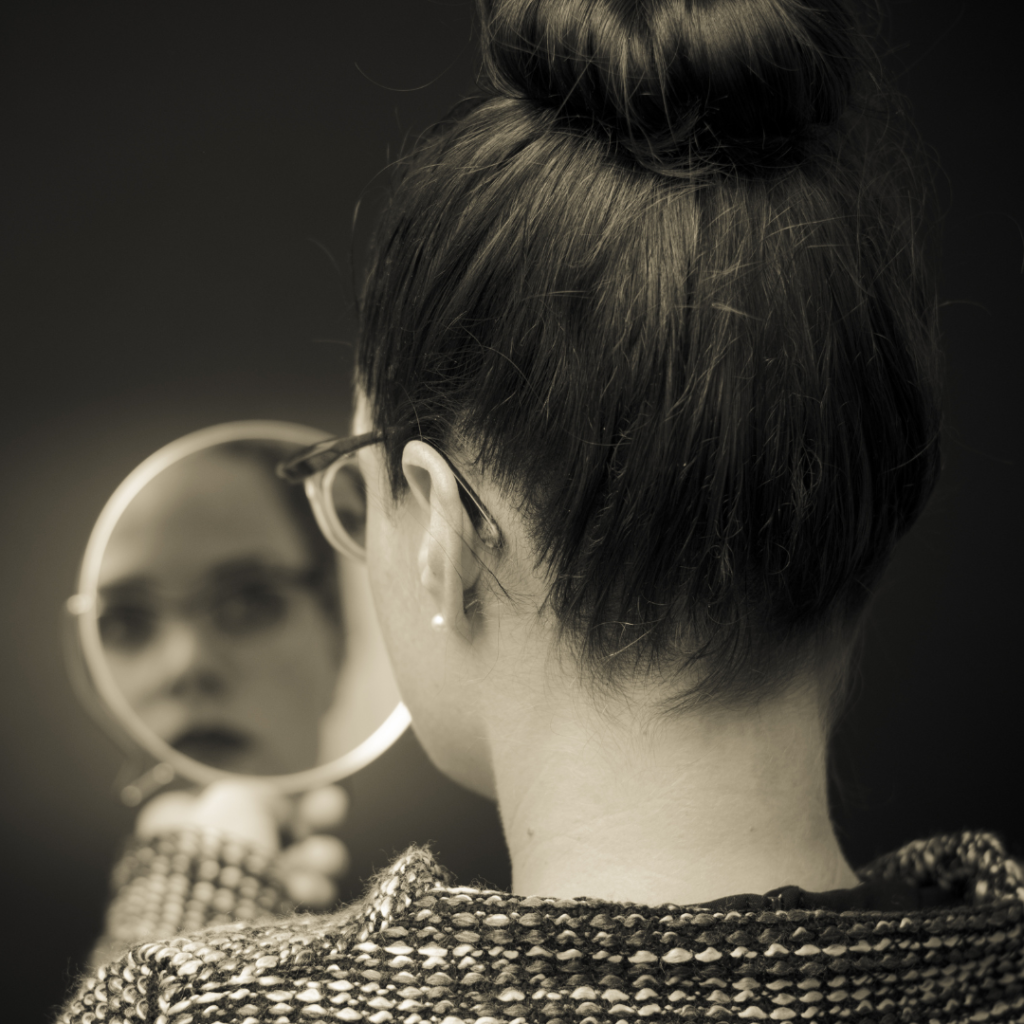By Dr. Julie Ducharme
I have always been very aware of my body. Growing up, I experienced rapid growth, becoming taller than most boys, super skinny, and lacking in curves. The boys made fun of me for my height and my flat chest. It seemed impossible that anyone could be mocked for being too skinny, but that was my reality. When I entered college and started playing sports, my body changed again. I bulked up and became muscular, which didn’t sit well with the boys either. I was no longer “too skinny” but now “too buff.” It felt like a losing battle: too skinny, too buff, never fitting the TV image of a sexy body.
As I transitioned into marriage and motherhood, my body transformed yet again. I developed hips, breasts, and stretch marks. Having my son at 34 meant my body didn’t bounce back like it might have in my 20s. I was labeled a “geriatric patient” during my pregnancy, which only heightened my body-conscious issues.

These experiences underscore the stereotypes and pressures that exist in our society. In American culture, there is an expectation that worth is tied to being skinny, beautiful, and having a picture-perfect life as showcased on social media. This stigma extends into the workplace, where a woman’s body can significantly affect how she is treated. Studies have shown that there is discrimination against people considered “fat.” Overweight individuals are often perceived as lazy, lacking self-control, and unfit for leadership roles. As a result, deserving individuals may be passed over for promotions in favor of less qualified but more conventionally attractive candidates.
Rebecca Pearl, a psychologist and assistant professor at the University of Pennsylvania, has noted that women are more likely than men to suffer the fallout from such stereotypes. She states, “Women’s attractiveness can have an impact on their careers.” This statement is both shocking and disheartening.
A study by the University of Arizona found that overweight women are more likely to experience workplace discrimination than their male counterparts. The study revealed that overweight women are 16 times more likely to report weight discrimination than men, highlighting a significant gender disparity. Furthermore, a study published in the International Journal of Obesity found that individuals who are overweight are often perceived as less competent and less qualified than their peers, regardless of their actual abilities and accomplishments.
I have personally experienced this type of discrimination. I’ve been told I was too cute, too pretty, and too young to be taken seriously. I’ve also faced inappropriate propositions from bosses. However, I navigated these challenges through hard work and self-worth, proving my capabilities through merit rather than succumbing to these stereotypes.

It’s baffling to think that people can make such assumptions about someone’s abilities based on their body. In my experience, I’ve met many unique-looking individuals who defy stereotypes. Their worth, potential, and skills are not dictated by their appearance. Not every woman needs to look like Barbie to be successful. Most of us don’t resemble the unrealistic images portrayed by the media.
When we look at protected classes in an organization, we see pregnant women, disabled individuals, veterans, and the elderly. However, there is no protection for women who don’t fit the “Barbie” mold. How many talented women are overlooked because they don’t have that ideal body type? Weight is a complex issue for women. We gain weight for various reasons and don’t lose it as quickly as men. Our bodies undergo significant changes, especially during pregnancy.
Let’s not forget the incredible journey of motherhood. We carry babies for nine months, gain weight, endure labor, and are expected to bounce back in just eight weeks. Society often overlooks the immense effort and multitasking required to maintain a “perfect” body while juggling the demands of life and work. We shouldn’t have to be perfect.
A study by the University of Queensland found that workplace discrimination based on body size is widespread. The research indicated that overweight women are less likely to be hired, promoted, or receive raises compared to their thinner counterparts. This bias is not only unfair but also detrimental to workplace diversity and productivity.
It’s time to change the stereotypes. In the office, let’s celebrate our bodies and ourselves. Show that any body type is okay as long as you love yourself. Our skills and worth are not dictated by our bodies; we define them. Let’s eliminate diet conversations and negative talk about our bodies. Embrace who you are, and love yourself.
We can start by fostering a workplace culture that values diversity and inclusivity. Employers should implement policies that promote body positivity and discourage discrimination based on appearance. This includes providing training on unconscious bias and ensuring that hiring and promotion practices are based on merit, not physical appearance.

Furthermore, let’s support each other in breaking free from societal pressures. Encourage conversations about self-acceptance and body positivity. Share stories of overcoming body image issues and achieving success despite societal stereotypes. By doing so, we can create a more inclusive and supportive environment for everyone.





